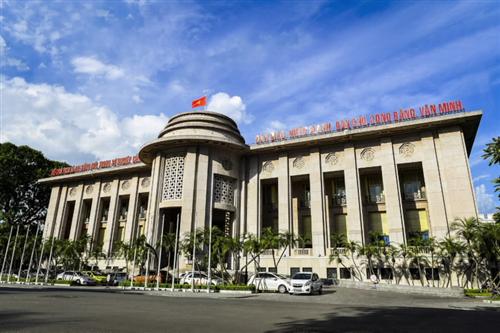Interest rates in Vietnam only nudged by coronavirus scare in February
Interest rates in Vietnam only nudged by coronavirus scare in February
Experts believe that coronavirus could impede demand for business expansion loans, which will subsequently lower the demand for bank capital. In this scenario, after the high inflation in the first half of the year, deposit rates may decline slightly to stimulate economic growth. 
The coronavirus (nCoV) epidemic is raising concerns among global investors that it could turn into a pandemic that cripples transportation, shopping, business meetings, and weighs on economic growth. Luxury retailers and travel companies have been among the hardest-hit shares in recent weeks.
Interbank interest rates increased slightly in January in large commercial banks with over VND5 trillion ($217.39 million) in owners’ equity.
Stocks closed the February 4 trading session modestly higher after banks and property stocks provided support for the market after Vietnam confirmed the tenth coronavirus case that stalled morning rebound.
Notably, the number of confirmed cases and fatalities from the pneumonia-inducing coronavirus continue to rise across the globe, with the death toll climbing to at least 427 and confirmed infections rising to around 20,600, 730 of whom have recovered as of February 4.
“Financial markets are reacting nervously to the spread of coronavirus, and more and more questions are being asked about the economic consequences,” Charlie Lay, a foreign-exchange strategist at Commerzbank in Singapore, told the Wall Street Journal.
The Vietnamese government has implemented strong measures for infection prevention, such as suspending the issuance of visas to tourists from China, suspending festivals, and granting another week off for school students.
For instance, Chinese employees returning to work in Ho Chi Minh City after the Lunar New Year break have been requested to stay away from their workplace for 14 days.
The request was made on Tuesday by Ho Chi Minh City Department of Labour, Invalids and Social Affairs to 187 local companies that have altogether 1,069 Chinese employees on their rolls. According to researchers at Bao Viet Securities (BVSC), these moves will exert certain negative impacts on the domestic economy.
In case the nCoV epidemic is brought successfully under control, BVSC forecasts that Vietnam’s GDP will grow by about 6.5 per cent in the first quarter of 2020, but it is still 0.2-0.4 per cent lower than in the same period last year.
Experts also believe that nCoV could hold up demand for business expansion loans, subsequently lowering the demand for bank capital as well.
In this scenario, after the first half of the year with high annual inflation, deposit rates may decline slightly to stimulate economic growth.


























